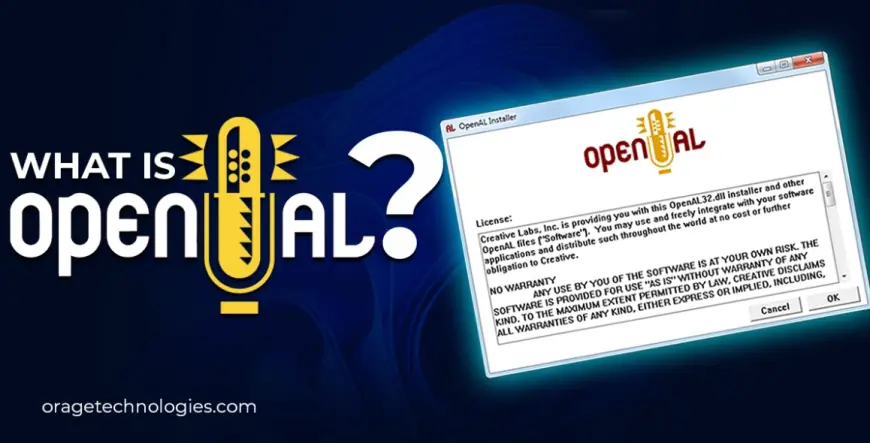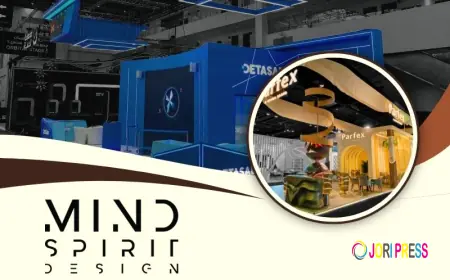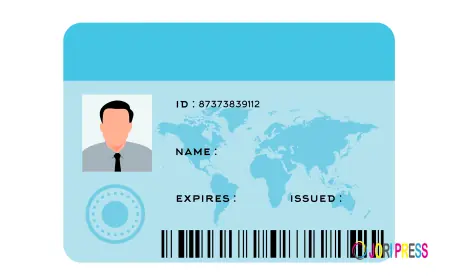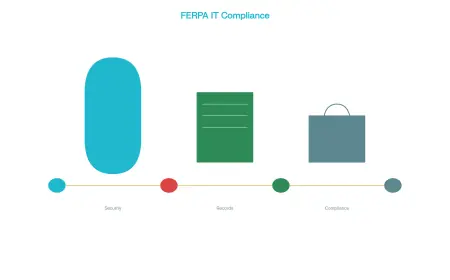Demystifying OpenAL: Powering Audio in Modern Applications
Discover OpenAL, the open-source audio API powering immersive sound in games and multimedia. This guide explores its role, benefits, and whether to keep or remove it, with FAQs for clarity.

OpenAL - short for Open Audio Library - is a key element in many software applications, including games and multimedia applications, when it comes to providing an immersive audio experience. If you have found OpenAL on your computer and are wondering what it does or if it is safe to remove, you are not alone. This guide will give you an overview of how OpenAL works, what it does when delivering sound, and why it is still of value in the modern world. Through answering some important questions and providing straightforward answers, we hope to clearly present the importance of OpenAL and allow you to make an informed decision about what you would like to do with it on your system.
What is OpenAL and Why is It Useful?
Have you ever wondered how a video game can make an explosion sound distant, or how you can hear footsteps approaching from behind? OpenAL is an open-source, cross-platform audio API that lets developers create complex 3D audio experiences. Originally developed by Loki Software and now managed by the open-source community, OpenAL is designed to handle spatial audio to replicate how sounds behave in 3-dimensional space. This gives the developer the ability to give the software a real sound experience for the user and take the experience to the next level of immersion.
OpenAL is available for many platforms, such as Windows, macOS, Linux, and mobile platforms such as iOS and Android. Being open source means that developers can use it free of charge and this has resulted in it being used in lots of projects from indie games to professional simulations. For end users, OpenAL just works. It runs in the background and makes audio feel dynamic and realistic in supported applications. OpenAL is an important piece of the modern software puzzle - it abstracts complexity into the audio processing to improve the user experience and this is what it was designed to do.
How Does OpenAL create realistic sound?
What makes OpenAL special at simulating realistic sound? OpenAL relies on a listener-source model for audio simulation in a 3D/virtual world. The listener represents the user's point of view, asin a player's character, while sound sources are simply objects that emit audio, such as a dragon's roar or a creaky door. OpenAL calculates sound travel from each sound to the user (listener) and adjusts the volume, direction, and tone depending on the relative positions of the listener and all sources and/or the relative movement of the listener and/or sources.
As an example, in a racing game, OpenAL ensures the sound of a car's engine will get louder as the car comes closer to the user and will move to the right speaker if the car passes on the right. OpenAL also has advanced features, such as reverb, which is intended to mimic echoes in large spaces, and the Doppler effect, which affects pitch based on the relative speed or movement between the listener and sources — a great example is a train's whistle pitch varying as it speeds by. These features give developers tools to create audio that is closely related to the non-virtual or real world, so the user may feel the experience is drawn and believable in applications such as games, virtual reality, multimedia projects, etc.
Why Did OpenAL Get Installed on My Device?
Noticed OpenAL in your system files and you’re wondering how it got there? Most likely, OpenAL got installed as a dependency of a software that uses OpenAL for audio operations. Applications like Left 4 Dead, F.E.A.R., and even Civilization IV all use OpenAL to create the amazing sounds that you hear in your games. When you installed those applications, the OpenAL libraries were installed to allow the applications to play audio or handle sound processing. You might see it as a DLL file in Windows, or as a framework in MacOS, or you might see it as part of the installation directory of a game.
Because OpenAL runs as a background component, it doesn't appear with a program icon and can appear somewhat cryptic to end users. However, having OpenAL installed is usually essential to have all the software work correctly. In the case you have installed multiple games or multimedia tools on your system, OpenAL will often service many of those software applications and you can enjoy seamless audio transactions between the applications.
Should I remove OpenAL from my system?
Is it okay to remove OpenAL, or should you keep it? This question comes up frequently when you want to reduce clutter on your computer. OpenAL is very small, usually only a few megabytes, and it would break audio in applications that use OpenAL. For example, if you removed OpenAL on a game like S.T.A.L.K.E.R., you would lose ambient sounds and actual dialogue, which can change the game entirely. In some cases, the software itself may not launch without OpenAL.
That said, if you don't have any OpenAL-dependent software anymore and you are convinced you won't need it, you can remove OpenAL to free up space - it won't be much free space. Before you do that though, check to see if the software you do have still utilizes OpenAL by reviewing their system requirements or documentation. One more note, if OpenAL files are included in some malware (which is rare), run a user reviewed antivirus prior to removing it. If you want to have OpenAL left over after uninstalling, or, if you do want to install it again after you have removed it, use the uninstaller that the software provides you to remove OpenAL. Or, without the uninstaller, check to make sure the file you are about to delete is not required by any applications you may have on your system. And of course, always, always make a back up of your system in case something doesn't work quite right on the application you are trying to delete - just in case!
How Does OpenAL Compare to Other Available Audio APIs?
If you're curious how OpenAL compares to options like FMOD or XAudio2, understand that audio APIs have their own advantages, and knowing which advantages can help make OpenAL's place in the mix. OpenAL is like XAudio2, which is part of Microsoft’s DirectX that gives developers resources for Windows and Xbox systems. But OpenAL has the additional benefit of cross-operating system compatibility, which is extremely beneficial for developers trying to create audio for more than one system. It saves time during development, and allows developers to expect consistency in audio across systems.
FMOD is a professional licensing audio solution, which has better tools, and a graphical user interface for audio functionalities. However, using FMOD's licensing for an indie project will cost money, unlike OpenAL which is free. FMOD is well known in professional media development and has the notoriety behind it for large commercial projects but going through the FMOD registration process and paying to use FMOD is not attractive for indie and smaller teams. If you choose systems that are developed with hardware acceleration technical specs, OpenAL will use the hardware acceleration provided by the sound card but because most modern CPUs can do the same work as a sound card, this is an even playing field among audio APIs. Keeping balance between ease of use, functionality and contracting costs is what keeps OpenAL a viable audio API solution.
What Advantages Do Developers and Users of OpenAL Gain?
What do developers and users appreciate about OpenAL? First, developers like OpenAL's open-source license with no cost, which allows for any project budget. Second, OpenAL is cross-platform, meaning that one (1) audio code base runs on Windows, macOS, Linux, and mobile devices. This allows for faster development and deployment. Third, OpenAL offers high feature sets for 3D audio positioning, and environmental effects so developers can create unique audio experiences without needing to do low-level, complicated programming.
For users, OpenAL provides high-quality audio without impacting performance and speed of the operating system. OpenAL is lightweight so having a lot of audio running while playing a computer game does not slow down your device. As you traverse the virtual world or experience an interactive video presentation, OpenAL helps you become more immersed through realistic audio scenes. Lastly, the open-source community can help maintain OpenAL compatible with present-day hardware, enabling developers and users to rely on OpenAL.
Frequently Asked Questions About OpenAL
Still curious about OpenAL? Here are answers to common questions to provide further clarity:
Is OpenAL a security risk?
OpenAL is a legitimate audio library used by trusted applications. However, malware can disguise itself as system files, so download software from reputable sources and scan suspicious files with antivirus software.
Can I update OpenAL for better performance?
OpenAL updates are typically included with the software that uses it. You can also download the latest version from the official OpenAL website or trusted repositories to ensure compatibility with modern systems.
Does OpenAL work with new games in 2025?
Yes, OpenAL remains relevant for both new and legacy games due to its cross-platform support and simplicity. Titles like Amnesia: Rebirth and various indie games continue to use it.
Will OpenAL conflict with other audio tools?
OpenAL is designed to coexist with other audio systems and rarely causes issues. If conflicts arise, update your audio drivers or check for software-specific patches to resolve them.
In conclusion
OpenAL is a versatile and efficient audio API that powers immersive sound in games and multimedia applications. Its open-source nature, cross-platform compatibility, and robust features make it a valuable tool for developers and a seamless component for users. Unless you’re certain it’s no longer needed, keeping OpenAL ensures your software delivers the rich audio experience it was designed for. By understanding its role, you can confidently manage OpenAL on your system.
What's Your Reaction?
 Like
0
Like
0
 Dislike
0
Dislike
0
 Love
0
Love
0
 Funny
0
Funny
0
 Angry
0
Angry
0
 Sad
0
Sad
0
 Wow
0
Wow
0
















































